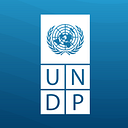Civiс activists smash corrupt informal payments scheme in Poltava hospitals

Starting from at least 2012, charitable foundations operating on the territories of hospitals in the city Poltava, in central Ukraine, were taking informal payments from patients — effectively bribes — together worth about UAH 16 million each year.
When people came to the hospital to see a doctor, medical staff would send patients to the offices of “charity foundations” located within the hospital to pay for visits or tests.
Registered legally as charities, sometimes these foundations held leases with hospitals, but most often operated in a semi-legal way.

“I have repeatedly experienced the practice of having to pay informal payments as a patient,” says Oleksandr Tkachenko, a senior analyst at the Institute of Analysis and Advocacy (IAA), an NGO that has been tackling the issue of informal payments in hospitals since 2013.
“After a visit to the doctor, I would be referred to a payment window with no identifying signs, and was handed a yellow piece of paper, which indicated the amount of money to be paid. I was given bogus receipts, and had no idea where this money went,” Tkachenko continues.
“These practices lasted at least six years — nobody even remembers exactly when they began.”
Tkachenko assumes that people paid because they were afraid doctors would refuse to see them if they didn’t.
According to of the institute’s calculations, the charitable funds received informal payments worth almost the annual budget of an average city hospital.
“Bribes were everywhere — from registering a patients’ medical cards to having an X-ray,” says Viktoria Loza, an adviser to the Ministry of Health and a medical consultant for the charitable organization “Light of Hope.”
According to Loza, the poor and vulnerable groups of the population, such as people with disabilities, single mothers and pensioners, suffered the most from the corrupt practices.

Since there was no obligation for the so-called “charity foundations” to report publicly in Ukraine, they turned into a mechanism for corruption.
Once a year, the “charities” reported to the State Tax Inspection, but most likely they did not declare the exact amount of payments they had taken in.
One of the reasons the informal payments scheme arose in the hospitals of Poltava was because of a lack of proper legislation.
And the problem was not isolated to Poltava: From 2014 to 2016 the Institute of Analytics and Advocacy conducted a thorough study of the phenomenon of informal payments in healthcare institutions in 18 regions of Ukraine.
Having analysed cases of informal financial relationships between patients and doctors, the experts found evidence that in all the regions studied there was an extensive system of bribes, at the heart of which were charitable foundations collecting donations from patients, which were located semi-legally in healthcare facilities.

In 2018 the institute, which is a member of the CSO-Hubs Network of Ukraine, launched an advocacy campaign aimed at combating such practices at healthcare facilities in Poltava through the introduction of transparent donation mechanisms.
“We offered the state authorities a ready-made solution, and were ready to help to implement it,” Romashko adds.
The institute’s team brought in regional NGOs to help it implement the campaign. The local government elections in the fall of 2018, which brought about changes in the leadership of local councils, also made it possible to fight the corrupt scheme.

The institute also arranged a social media campaign to make sure newly elected officials got the message.
“On the eve of voting, we organized a publicity campaign on social networks, engaging ordinary citizens, calling on them to share their personal stories. On the eve of voting, Poltava citizens shared their stories about informal payments widely,” recalls Iryna Domnenko, an IAA project manager.
Finally, on Nov. 30, 2018, a total of 29 of the 42 deputies on Poltava City Council supported a resolution entitled “On voluntary charity donations and the intensification of measures to control their receipt and use in health facilities in Poltava,” designed to crack down on the corruption scheme.
Eduard Volkov, a deputy on Poltava City Council, notes that it was thanks to the Institute of Analysis and Advocacy that the city authorities made this issue a priority, ceasing to ignore the problem of extortion in hospitals, and took the first steps to solving it.

According to Volkov, the resolution prevented hospitals from extending leases with charity foundations from the beginning of 2019, so they could no longer legitimately stay on the territory of hospitals.
Medical institutions also pledged to set up terminals where citizens can voluntarily make charitable contributions, with information about these contributions being published on an e-data portal accessible by the public.

So, what is required to run a successful advocacy campaign?
Yuriy Nestulia, the IAA manager who coordinated the campaign against corruption in Poltava’s hospitals, emphasizes that the successful implementation of such a campaign requires active cooperation with the authorities, the public and the media at all stages.

First, activists should study the problem carefully, and come up with possible solutions.
Second, it is necessary to communicate openly and constantly with all stakeholders, the media and citizens.
Third, you need to enlist the support of partner NGOs.
And last, NGOs should implement advocacy campaigns in their area of expertise.
“The resolution is only the first step to stopping the practice of informal payments (at hospitals),” says Oleksandra Denysenko, a representative of the NGO “Light of Hope” and a campaign activist. “We, as civil society, must make sure this resolution is properly implemented.”

Since 2017, the Institute of Analytics and Advocacy has been a part of the CSO-Hubs of Ukraine. The above advocacy campaign was implemented with the support of the UNDP Civil Society for Enhanced Democracy and Human Rights in Ukraine project, which is funded by the Ministry of Foreign Affairs of Denmark.
Text: Oksana Khomei, photos: Borys Viazovskyi
